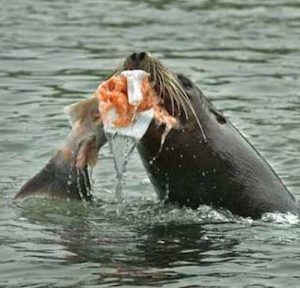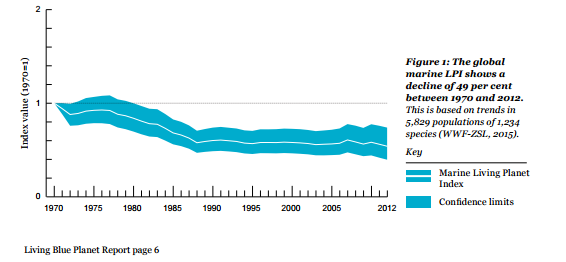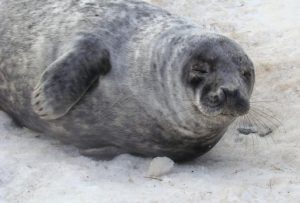Tag Archives: commercial fish stocks

DFO is making new fishing rules. Will they work? (without addressing seal/sea lion over population issues they won’t)
The proposed rules codify pre-existing internal DFO policies and require the ministry to assess the health of key fish populations in “batches”, salmon, rockfish and cod are in the first batch of 30, to figure out why their populations have declined (or could decline) and lay out a plan to bring the stocks back to healthy levels. If the ministry doesn’t comply or opens a threatened fishery, it could be sued. Similar, but more stringent, regulations have been successfully implemented in other jurisdictions with major fisheries, like the U.S. and the EU. >click to read< 07:50

FISH-NL condemns DFO’s discriminatory restriction to latest scientific information on commercial fish stocks
The Federation of Independent Sea Harvesters of Newfoundland and Labrador (FISH-NL) condemns a move by the federal Department of Fisheries and Oceans this year to limit access to the release of the latest scientific information on the status of key commercial fish stocks, and calls for a more fair and open process. “The raw scientific data on the status of commercial stocks such as shrimp, crab, caplin and groundfish should be available for all hands to absorb at one time,” says Ryan Cleary, President of FISH-NL. “This is a huge leap backwards for transparency. >click to read< 19:55
That Bogus WWF ‘death’ of the world’s oceans report? – Marine populations unchanged for almost 30 years
 “The report states that 61% of commercial fish stocks are fully exploited misleadingly implying that these stocks are overfished and not sustainably exploited,” said Europêche Managing Director Kathryn Stack. “In fact, if we look at the FAO report in question, it clearly states that over 70% of global fish stocks are within biologically sustainable levels (below or at MSY levels i.e. full exploitation, which incidentally is the objective of the CFP and many RFMOs by 2020)**. It is unacceptable that an organisation such as WWF can be allowed to distort information which has a huge impact on the fishing sector’s reputation.” Read the rest here 08:11
“The report states that 61% of commercial fish stocks are fully exploited misleadingly implying that these stocks are overfished and not sustainably exploited,” said Europêche Managing Director Kathryn Stack. “In fact, if we look at the FAO report in question, it clearly states that over 70% of global fish stocks are within biologically sustainable levels (below or at MSY levels i.e. full exploitation, which incidentally is the objective of the CFP and many RFMOs by 2020)**. It is unacceptable that an organisation such as WWF can be allowed to distort information which has a huge impact on the fishing sector’s reputation.” Read the rest here 08:11








































